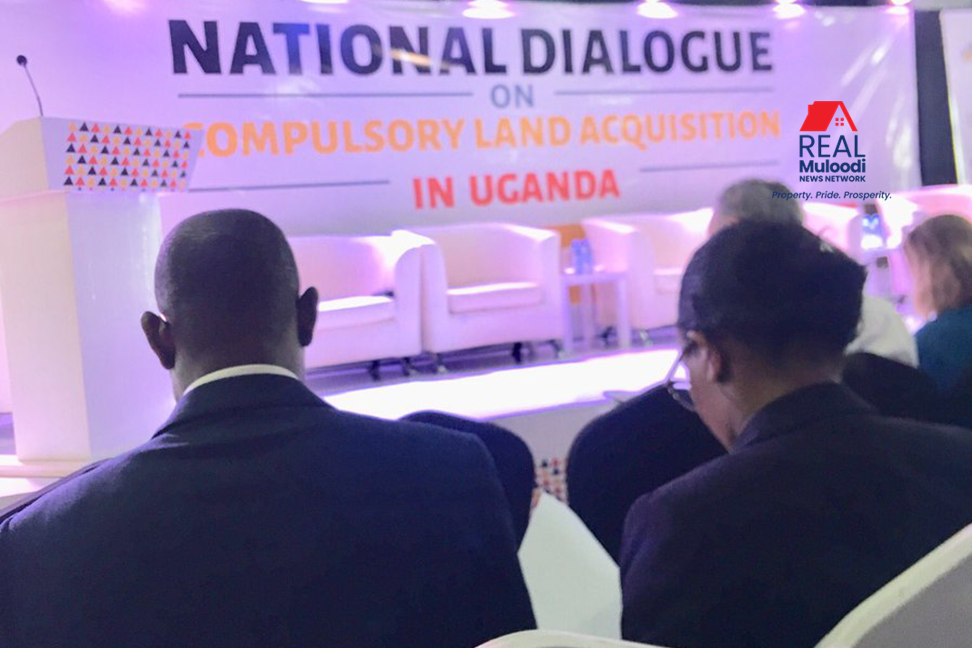UGANDA, Kampala | Real Muloodi News | Government ministers have proposed amendments to existing laws to facilitate compulsory land acquisition for public infrastructure projects.
During a leadership meeting under the Sustainable Urbanisation, Housing, and Land Management (SUHLaM) program, Kampala State Minister Kabuye Kyofatogabye, State Minister for Public Service Grace Mary Mugasa, and State Minister for Local Government Victoria Rusoke proposed changes to streamline the process of acquiring land for public use.
Minister Rusoke suggested abolishing compensation for land designated for infrastructure development, stating that it imposes a significant burden on the national budget.
“Compensation is becoming a very big thorn in the budget of this country. We may need to review our laws so that if a service is planned, the land where it passes is given for free,” she said.
She alleged that certain individuals purchase land in areas marked for development to profit from compensation.
Minister Kyofatogabye urged leaders to make challenging decisions that may not be popular but are necessary for completing development projects.
“Let us stop looking at votes. We need to make these decisions now to ensure we complete projects,” he said.
Minister Mugasa criticized the current system, arguing that it leaves the government at a disadvantage.
“The government is like a beggar. Yet we are the ones who gave people the land because, formerly, the land belonged to the government. In countries where land belongs to the government, they have better infrastructure because they can do whatever they want,” she stated.
The ministers cited Article 26 of the 1995 Constitution as a primary hurdle in the land acquisition. The article guarantees the right to own property and specifies that compulsory acquisition is only permissible for public use if fair and prompt compensation is provided.
The ministers proposed revising this constitutional provision to enable the government to acquire land more efficiently, arguing that current laws make development projects prohibitively expensive.
Mugasa noted that road construction projects in Uganda cost ten times more than similar projects in neighboring Tanzania due to inflated compensation demands.
The proposals have sparked criticism from legal experts and landowners. Lawyer Elias Nalukoola argued that the amendments would violate constitutional rights and international agreements Uganda has signed.
“Their proposals call for amending the Constitution, which would be unacceptable in a free and democratic society. It also contravenes international instruments like the Universal Declaration of Human Rights,” he said.
James Galabuzi Mukasa, chairperson of the Uganda Landowners Association, expressed concerns about the potential abuse of the proposed amendments. He stated that existing legal frameworks already allow the government to acquire land for public use and cautioned against creating loopholes that could be exploited by officials.
“Some government officials may misuse this to take over people’s land. Let’s stick to the current frameworks,” he said.
This debate is not new. In 2017, the government introduced a bill to amend Article 26, but it faced widespread opposition and failed to pass despite significant advocacy efforts by President Museveni. The issue resurfaced during the SUHLaM meeting, attended by multiple ministers and agency heads, which aimed to address challenges in urbanization, land management, and housing.
While the government argues that simplified land acquisition is essential for national progress, critics warn that weakening constitutional safeguards could lead to misuse and unfair treatment of landowners.
READ MORE LIKE THIS:
Widow’s Land Rights: Aidah Aboth Case Highlights Land Disputes in Tororo



